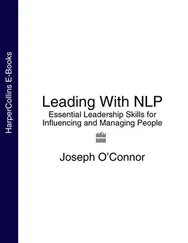John Gray - Children Are from Heaven - Positive Parenting Skills for Raising Cooperative, Confident, and Compassionate Children
Здесь есть возможность читать онлайн «John Gray - Children Are from Heaven - Positive Parenting Skills for Raising Cooperative, Confident, and Compassionate Children» весь текст электронной книги совершенно бесплатно (целиком полную версию без сокращений). В некоторых случаях можно слушать аудио, скачать через торрент в формате fb2 и присутствует краткое содержание. Год выпуска: 1999, ISBN: 1999, Издательство: HarperCollins e-books, Жанр: psy_childs, sci_pedagogy, Психология, на английском языке. Описание произведения, (предисловие) а так же отзывы посетителей доступны на портале библиотеки ЛибКат.
- Название:Children Are from Heaven: Positive Parenting Skills for Raising Cooperative, Confident, and Compassionate Children
- Автор:
- Издательство:HarperCollins e-books
- Жанр:
- Год:1999
- ISBN:978-0-06-133886-1
- Рейтинг книги:4 / 5. Голосов: 1
-
Избранное:Добавить в избранное
- Отзывы:
-
Ваша оценка:
- 80
- 1
- 2
- 3
- 4
- 5
Children Are from Heaven: Positive Parenting Skills for Raising Cooperative, Confident, and Compassionate Children: краткое содержание, описание и аннотация
Предлагаем к чтению аннотацию, описание, краткое содержание или предисловие (зависит от того, что написал сам автор книги «Children Are from Heaven: Positive Parenting Skills for Raising Cooperative, Confident, and Compassionate Children»). Если вы не нашли необходимую информацию о книге — напишите в комментариях, мы постараемся отыскать её.
Children Are from Heaven: Positive Parenting Skills for Raising Cooperative, Confident, and Compassionate Children — читать онлайн бесплатно полную книгу (весь текст) целиком
Ниже представлен текст книги, разбитый по страницам. Система сохранения места последней прочитанной страницы, позволяет с удобством читать онлайн бесплатно книгу «Children Are from Heaven: Positive Parenting Skills for Raising Cooperative, Confident, and Compassionate Children», без необходимости каждый раз заново искать на чём Вы остановились. Поставьте закладку, и сможете в любой момент перейти на страницу, на которой закончили чтение.
Интервал:
Закладка:
This brand of soft-love parenting does not work and has made many parents suspicious of new nurturing skills of positive parenting. Fortunately, positive-parenting skills work right away. They work in the short run and in the long run.
The failure of soft love parenting make many
parents suspicious of positive-parenting
techniques.
Soft-love parents sometimes give in to their child’s wants and wishes, because they just don’t know what else to do to stop the tantrum. They refuse to do what was done to them when they were growing up, but they don’t know another way that works. They know that spanking and shaming doesn’t work, but don’t know what does. By indulging their children, they mistakenly give the message that throwing tantrums or being demanding is a good way to get what you want.
Soft-love parenting tries to please and placate the child.
Soft-love parents will do whatever they can to avoid a confrontation with their child. They don’t know what to do when the children resist a request and develop new ways to avoid their children’s resistance and to motivate cooperation. They give the message that it is okay to resist, but they don’t establish that they are the boss.
To avoid a child’s resistance, many parents are even taught by well-meaning experts always to give a child a choice. Giving choices will lessen resistance, but it doesn’t create cooperation. It is another way of giving a child too much power and weakening your power as boss.
Giving choices will lessen resistance,
but it will not create cooperation.
Until the age of nine, a child doesn’t need choices. Having too many choices pushes a child to grow up too soon. One of the greatest sources of stress for adults today is too many choices. Directly asking a young child what she wants puts too much pressure on the child. Always asking children what they want or how they feel weakens a parent’s ability to maintain control.
Greater freedom and responsibility creates more anxiety unless we are ready for it. Children younger than nine are not ready for it. They need strong parents who know what is best for them, but who are also open to hearing their resistance and discovering their wants and wishes. After discovering a child’s wishes and wants, parents can then decide to change their direction or hold strong. Either way, the parent is still in charge.
This concept is similar to our court system. Once a case is tried, it cannot be reopened unless there is new evidence.
In a similar way, although a child can resist, and it doesn’t mean the parent will budge from his or her point of view. If the parent gets new insight by listening to the child, it is fine to reconsider what is to be done. Parents may change their mind, not because they are afraid of resistance, but because new information has been considered that has changed their point of view. Like the court system, parents do not change their request unless new information becomes available.
Children need strong parents who know
what is best; they don’t need more choices.
Soft-love parents don’t know that resistance is an important need that children have. Children need to test the limits and make sure what you want them to do is really important. Otherwise, they have things to do that they consider more important. Just as children need permission to resist and test the limits imposed on them, they need a strong parent who will listen and then decide what is best.
Positive parents always decide, because they are the boss.
Children are not ready to be self-employed.
They need a boss.
Without a boss, they begin to self-destruct. Permissive, soft parenting minimizes resistance in the short run, but weakens children’s willingness to cooperate. As a result of hard parenting, girls tend to lack confidence, while boys lack compassion.
As a result of soft parenting, girls tend to have low self-esteem and, later in life, give too much, while boys become hyperactive and lack confidence and discipline.
Children are not ready to be self-employed; they need a boss.
Using positive-parenting skills means hearing your child’s resistance and then deciding what is best. Deciding what is best doesn’t mean that you do not deviate from your original position. As your children develop a greater awareness of what they need and want, often they become great negotiators and are able to persuade you to change your mind.
There is a world of difference between giving in to your child’s feelings or wishes and changing what you think should be done. Parents are the boss, but they must not always rigidly hold on to their request or point of view. To listen to a child’s resistance means to consider what he or she is feeling and wanting and to decide what is best and then to persist.
It is fine to begin asking your nine year old and older children what they feel, want, wish, or need directly. Then around the age of twelve to fourteen, it is time to begin asking teens what they think. The development of abstract thinking at puberty signals children’s ability to start making decisions for themselves. How we communicate with our children always needs to be age appropriate.
At every age, children need a clear message that it is okay to make mistakes. The best way to teach this is by learning from your own mistakes. The truth is parents are not always right, and they don’t always know what is best.
They can know better if they consider and hear their child’s resistance. If parents change their point of view, it should be because they learned something and think a change is best.
They should not change their point of view to minimize a child’s resistance. Placating your children to minimize resistance only paves the way to greater resistance in the future.
LEARNING TO DELAY GRATIFICATION
Whether parents use hard love or soft love, their children do not get an opportunity to experience and cope with their resistance to limits. Expressing resistance not only defines the limits of a child’s space and influence, but also helps the child adjust. Learning to accept the boundaries and limits of time and space is a big lesson in life. Pushing up against life’s limits can teach children to embrace those limits without having to deny themselves. One great benefit of expressing and then letting go of resistance is the ability to delay gratification.
Many studies have shown that children who are able to postpone gratification are more successful in life. This really doesn’t require a study to realize. Look around you and you will see that people who succeed are people who patiently persist in achieving their goals. They do not throw in the towel when they don’t get what they want right away. They don’t lose touch with or deny their wants and wishes just because life doesn’t give them what they want when they want it. They bounce back from life’s setbacks with renewed energy and enthusiasm.
The ability to delay gratification is also the ability to be happy and at peace even though you don’t have everything you want. When children are able to resist their parents and then gradually let go of their resistance, they are learning to accept what has to be. They are accepting limits in a spirit of cooperation and trust that everything is and will be okay.
Ironically, it is the ability to express resistance that allows us to become more fluid in life. A clear acceptance of what has to be allows us to see more clearly what can be changed.
This not only brings greater peace but the motivation to persist in trying to change what can be changed.
By expressing and then letting go of
resistance, children learn to accept what
has to be.
Within every person is the natural ability to bounce back from life’s limits and curve balls. When children resist not getting what they want, and parents can identify and understand the feelings underlying the resistance and can communicate that understanding to them, then the children discover their natural ability to be happy and accepting even though they are not getting what they want. By giving children the loving understanding they need, having what they want right away becomes no longer so important.
Читать дальшеИнтервал:
Закладка:
Похожие книги на «Children Are from Heaven: Positive Parenting Skills for Raising Cooperative, Confident, and Compassionate Children»
Представляем Вашему вниманию похожие книги на «Children Are from Heaven: Positive Parenting Skills for Raising Cooperative, Confident, and Compassionate Children» списком для выбора. Мы отобрали схожую по названию и смыслу литературу в надежде предоставить читателям больше вариантов отыскать новые, интересные, ещё непрочитанные произведения.
Обсуждение, отзывы о книге «Children Are from Heaven: Positive Parenting Skills for Raising Cooperative, Confident, and Compassionate Children» и просто собственные мнения читателей. Оставьте ваши комментарии, напишите, что Вы думаете о произведении, его смысле или главных героях. Укажите что конкретно понравилось, а что нет, и почему Вы так считаете.












